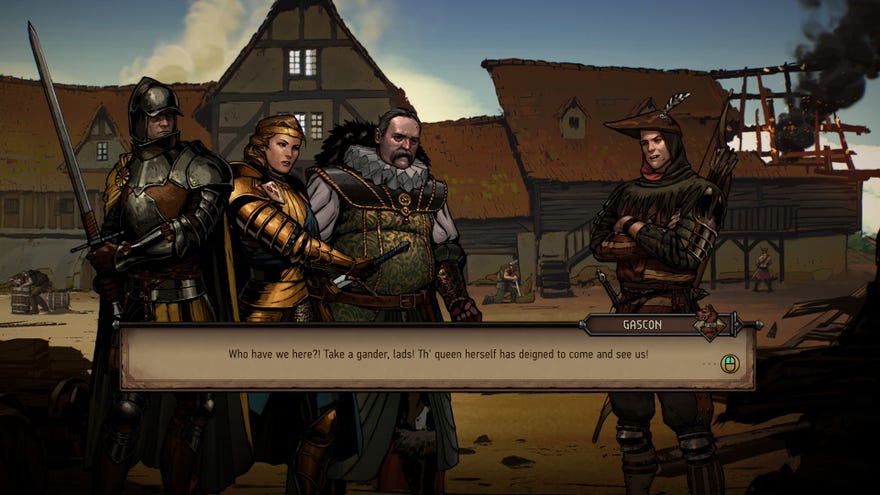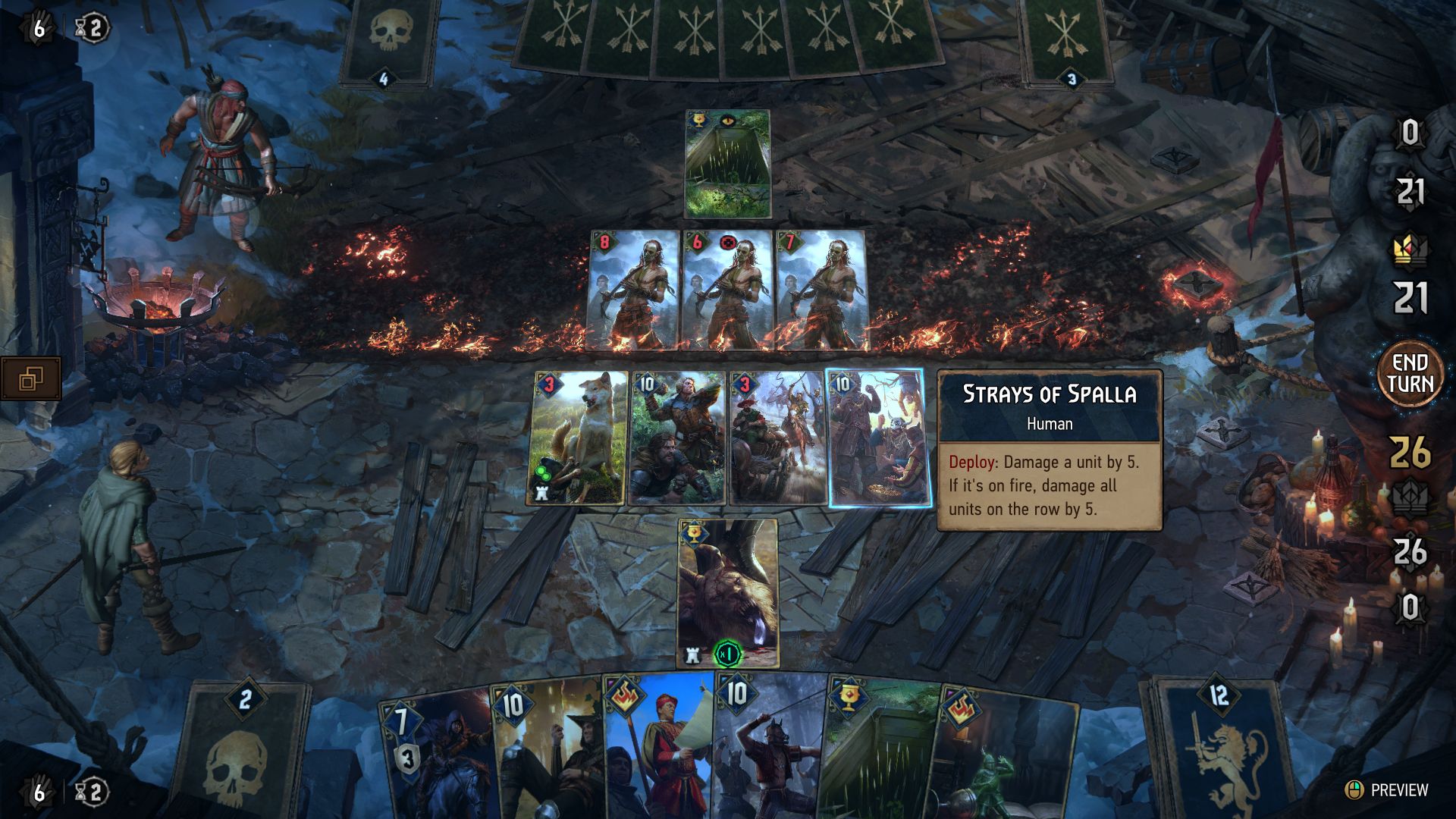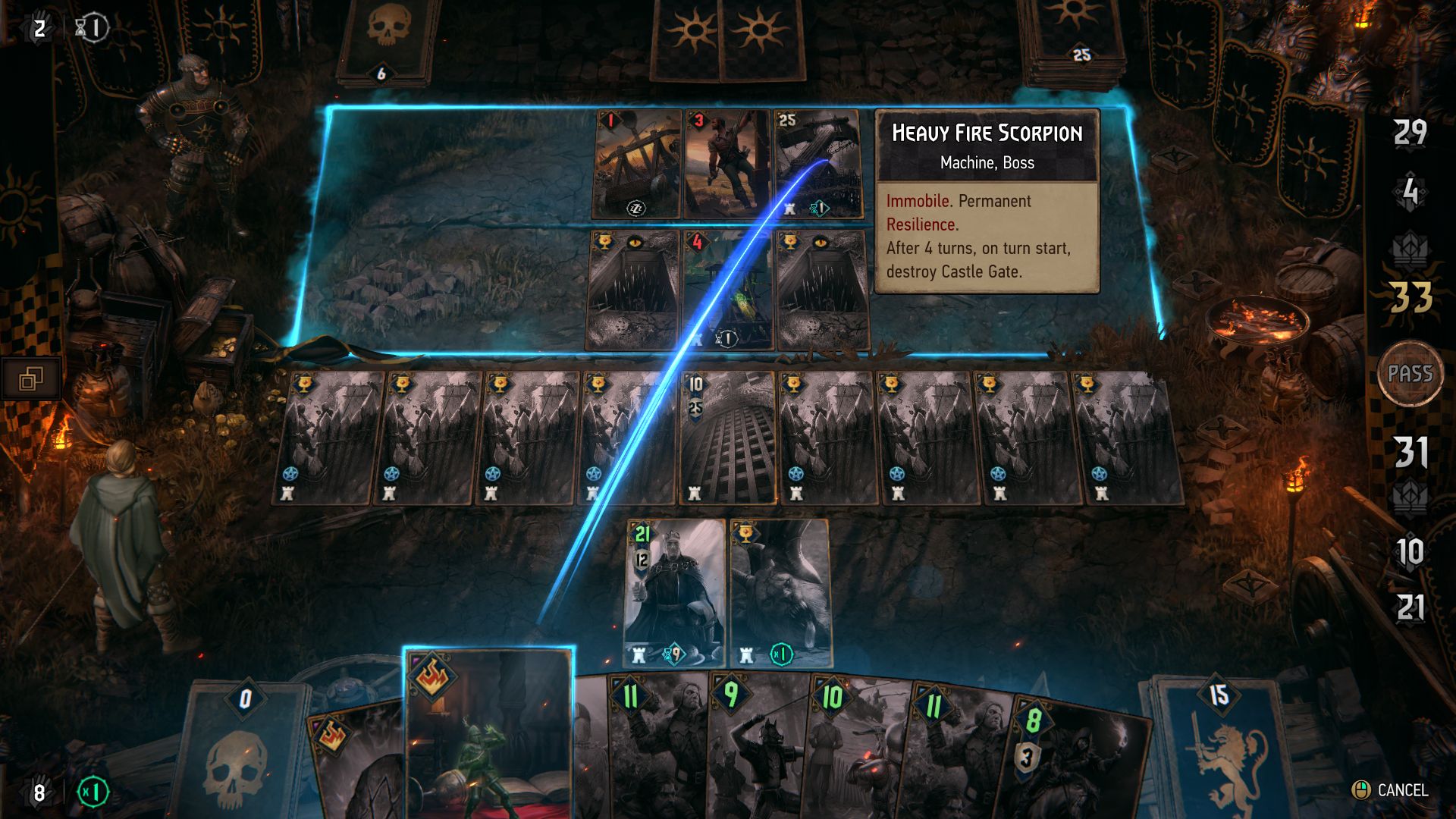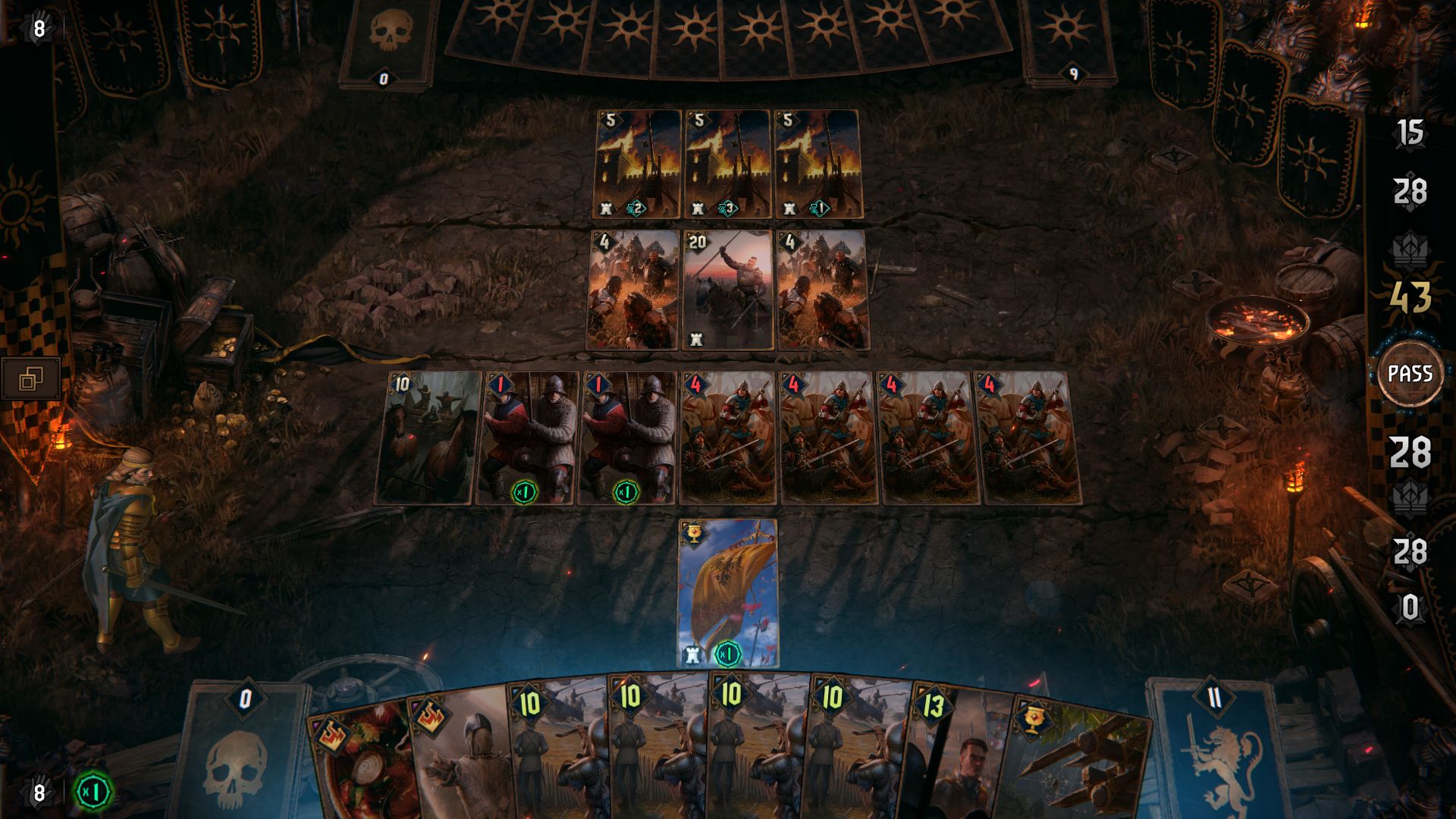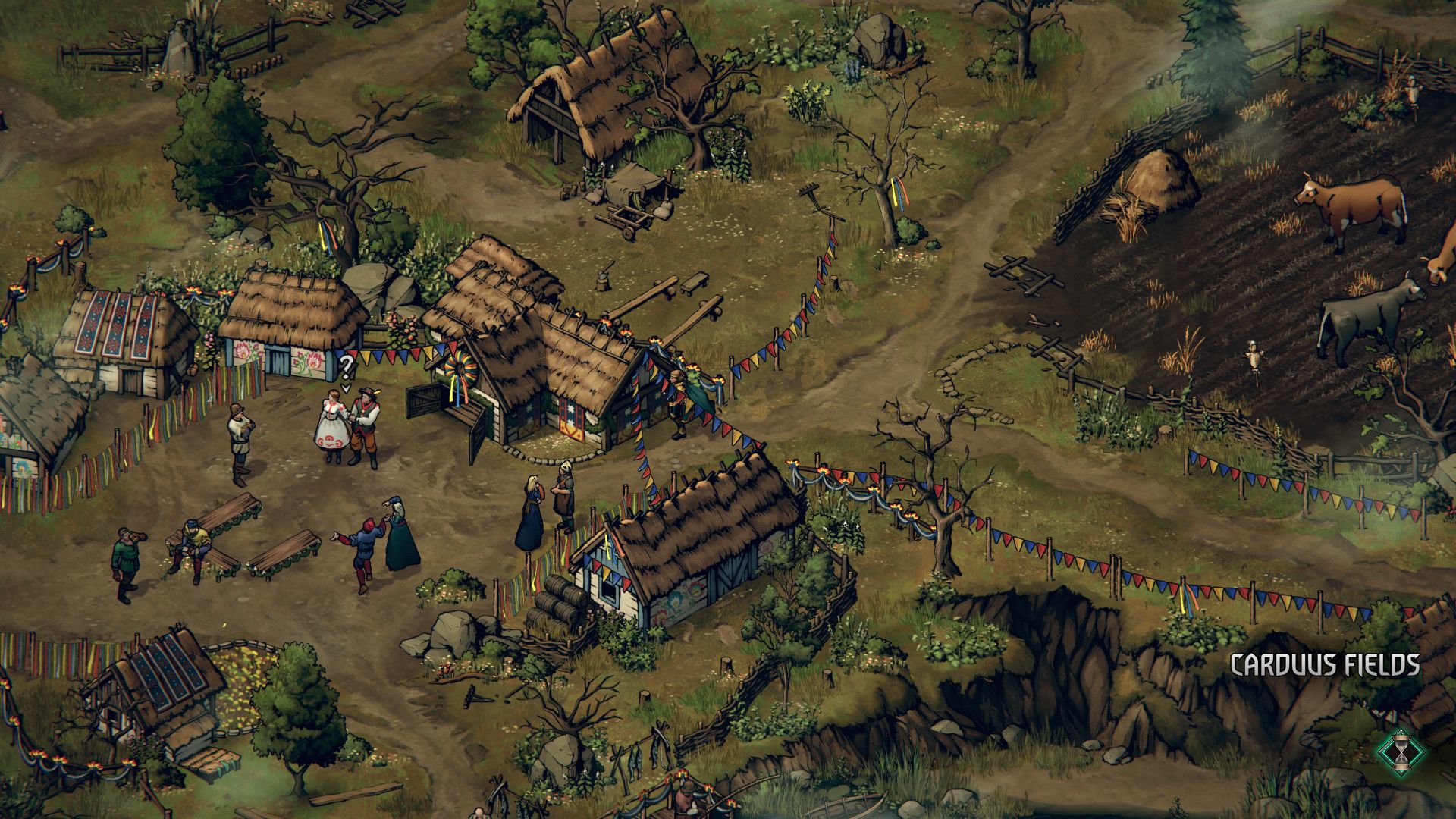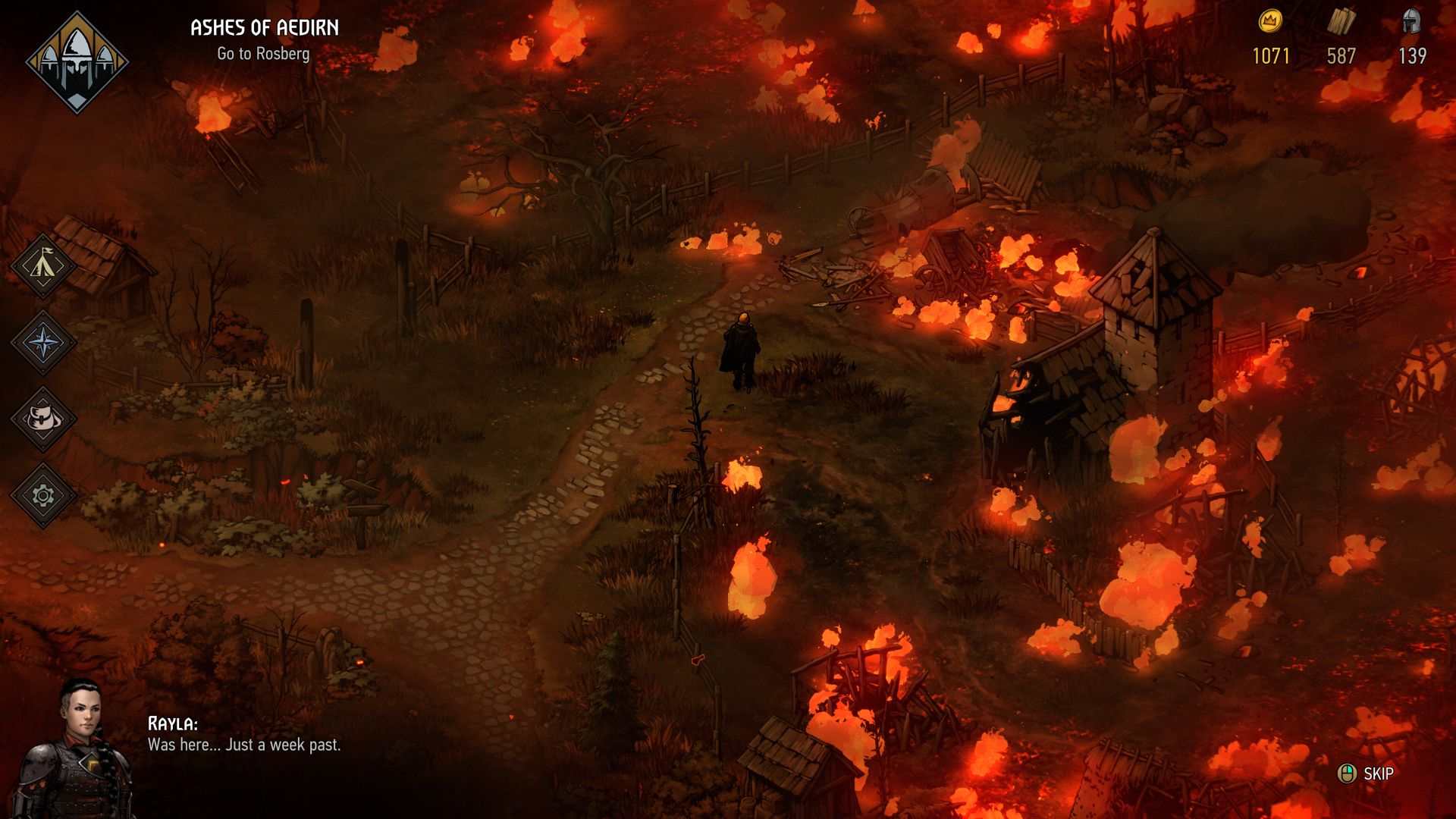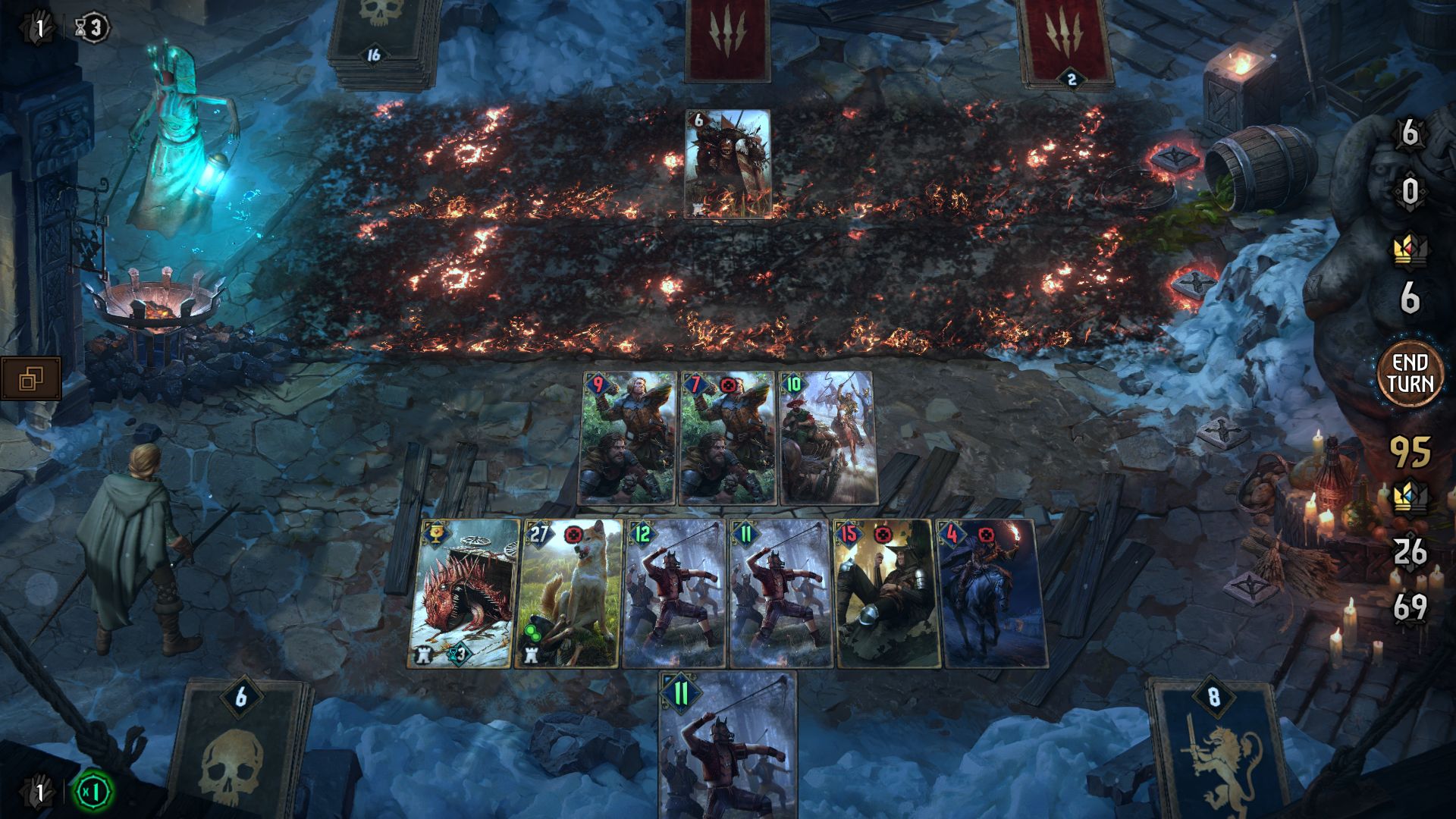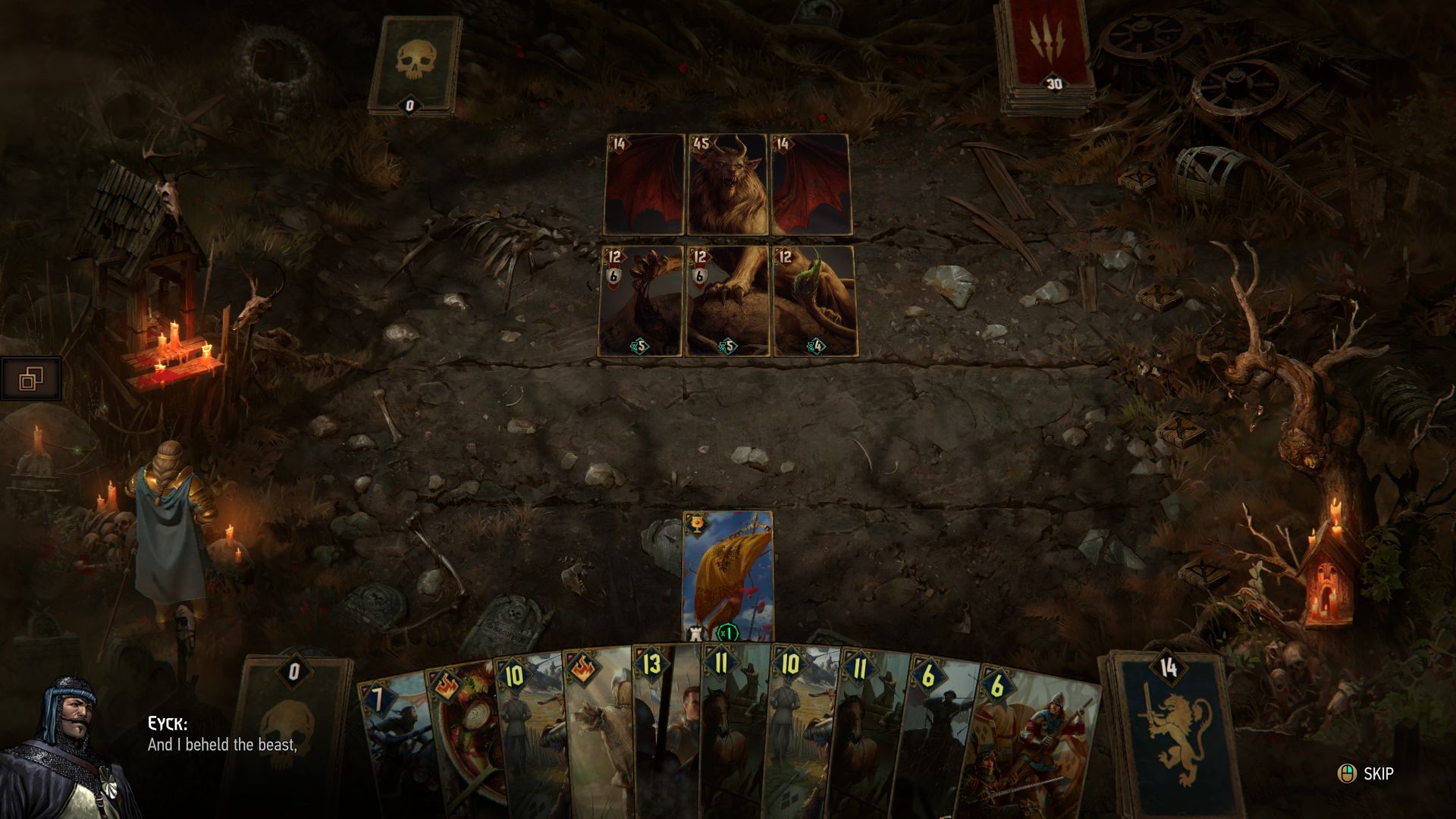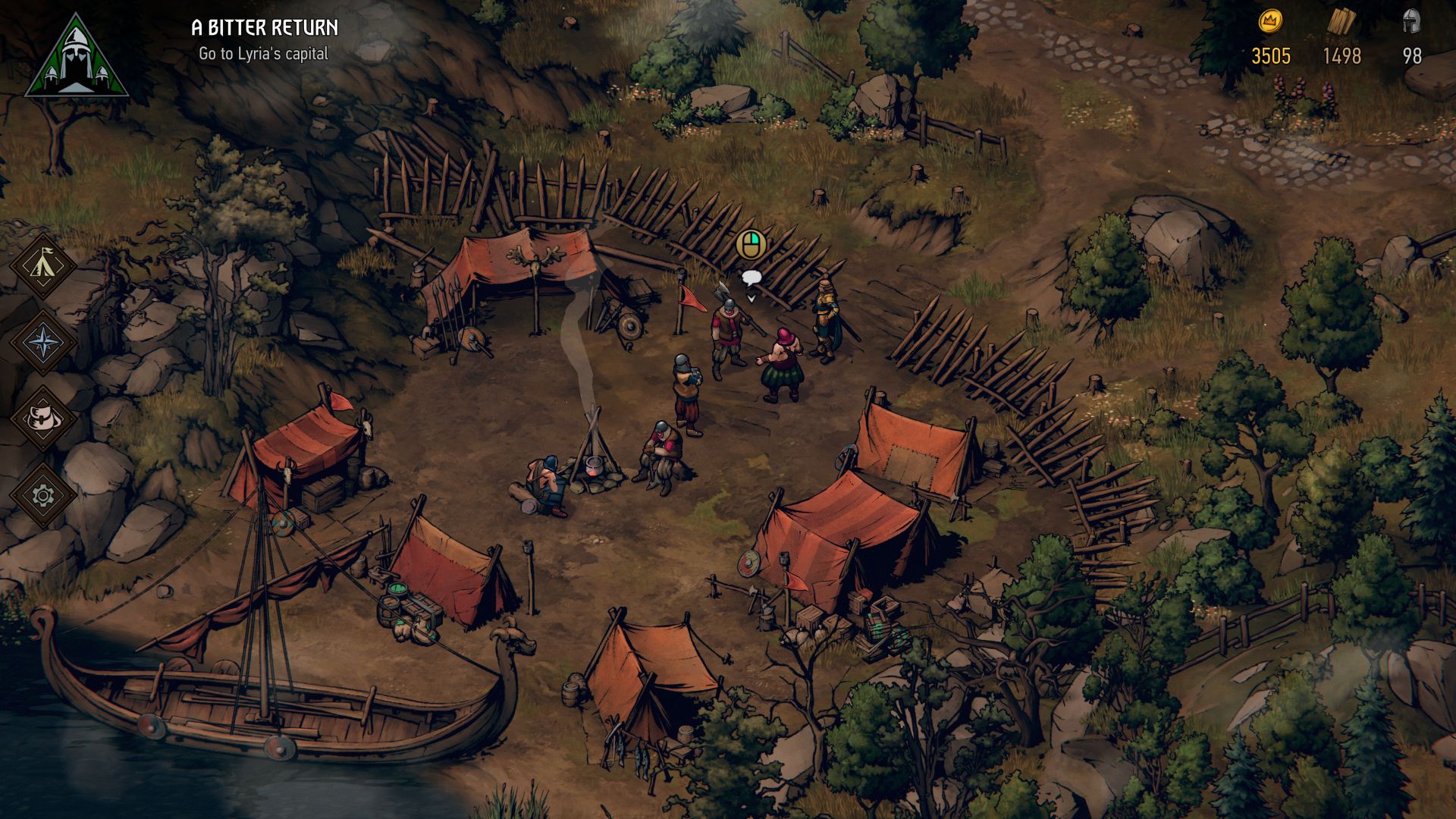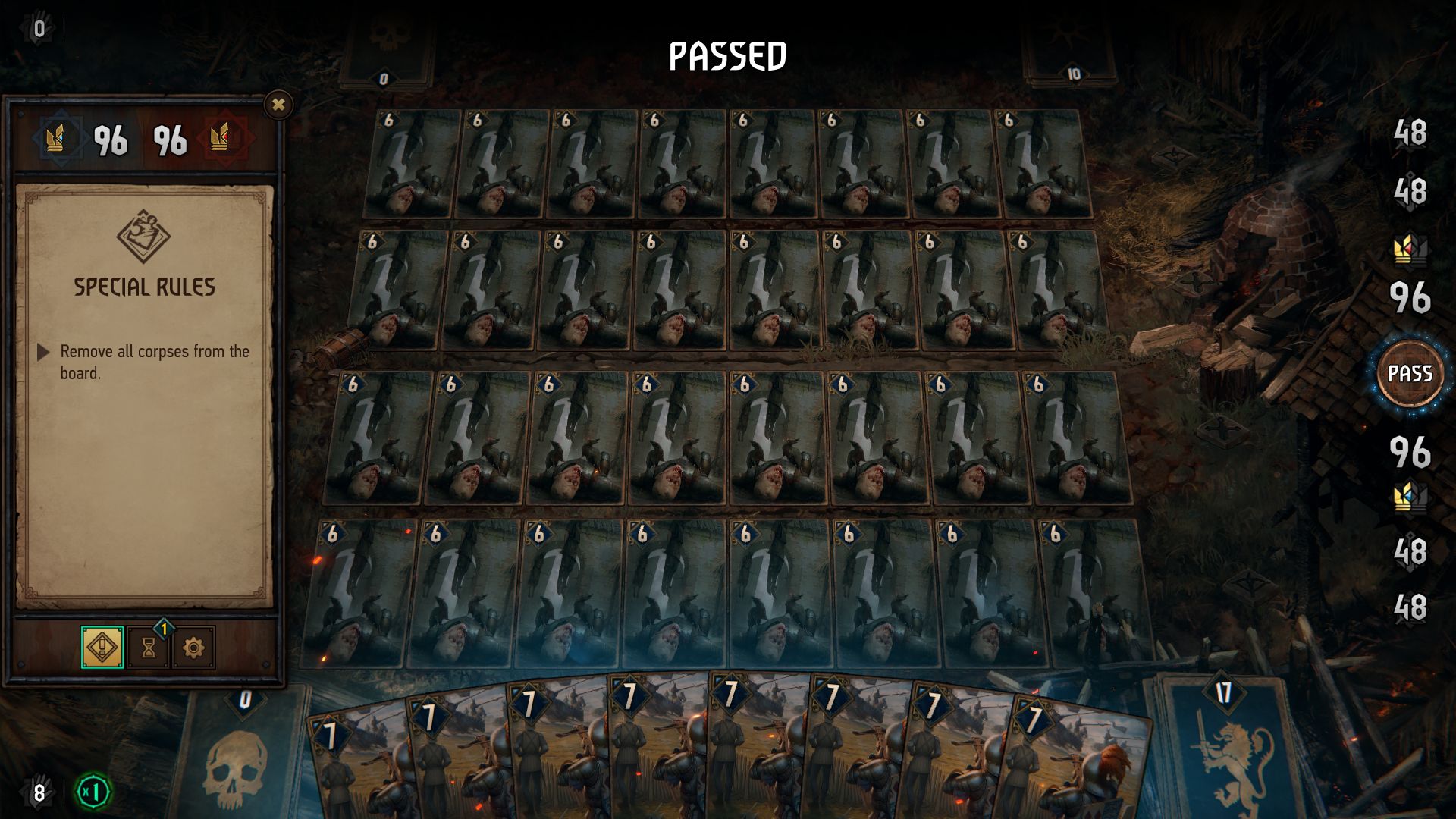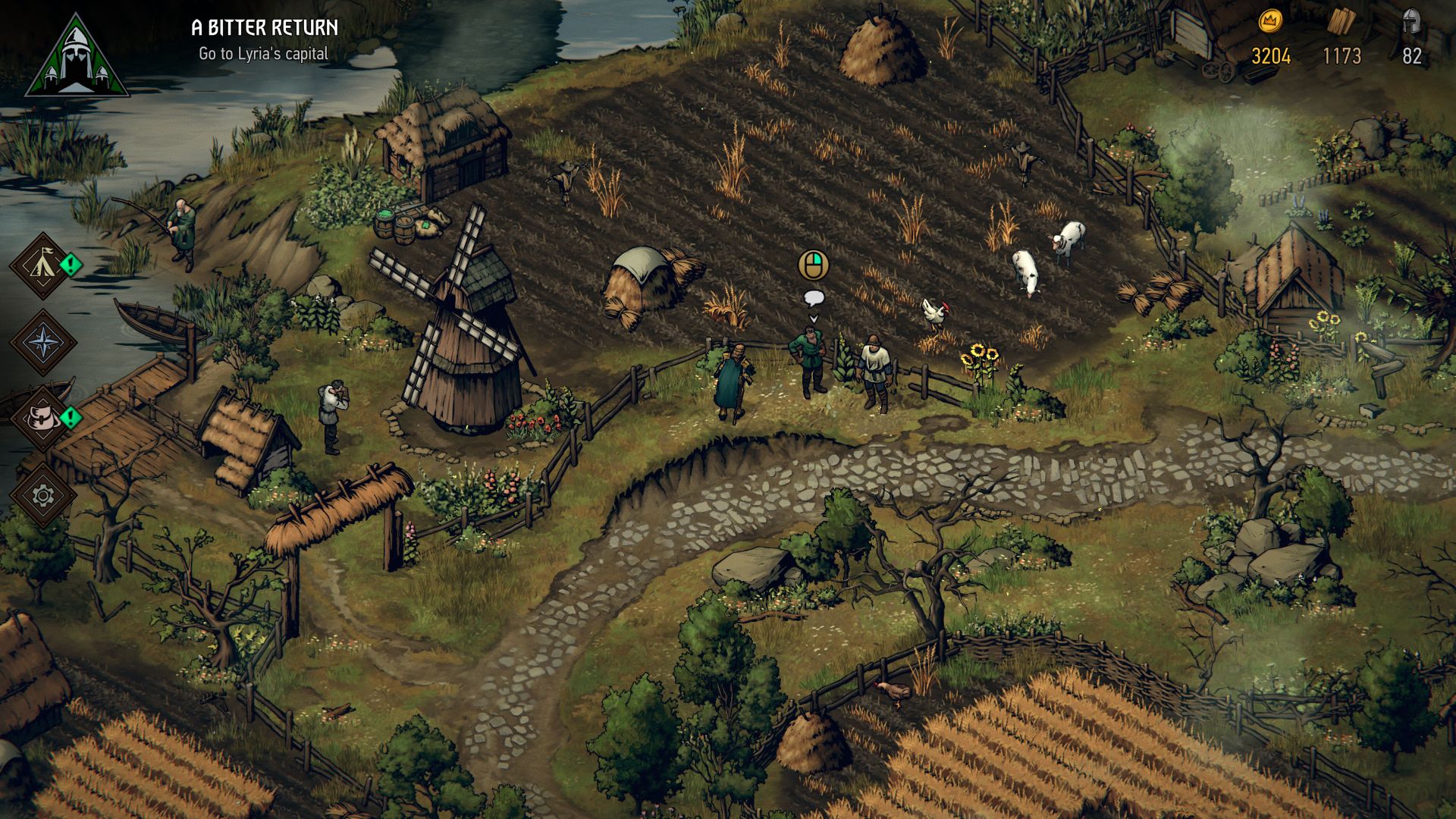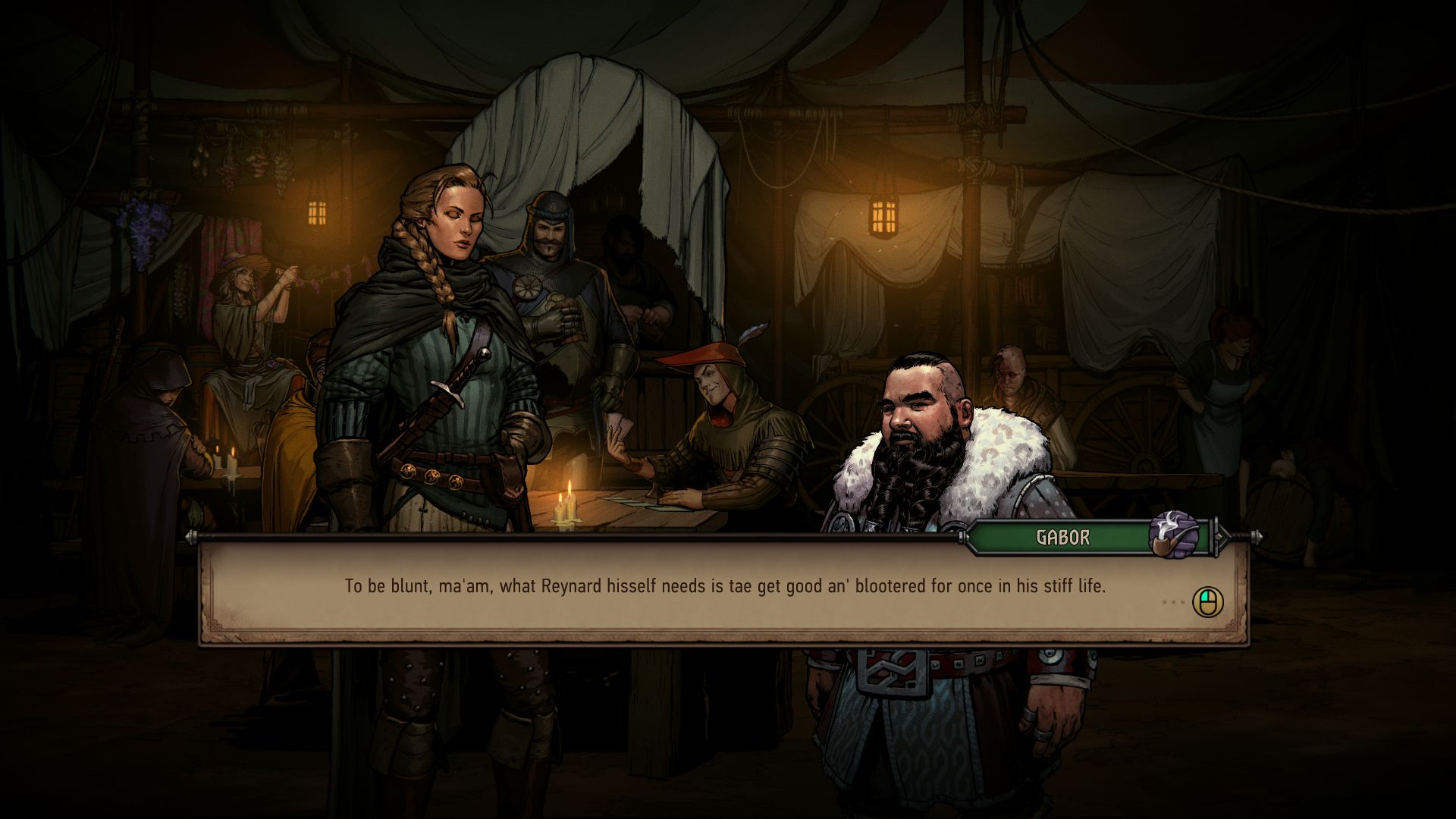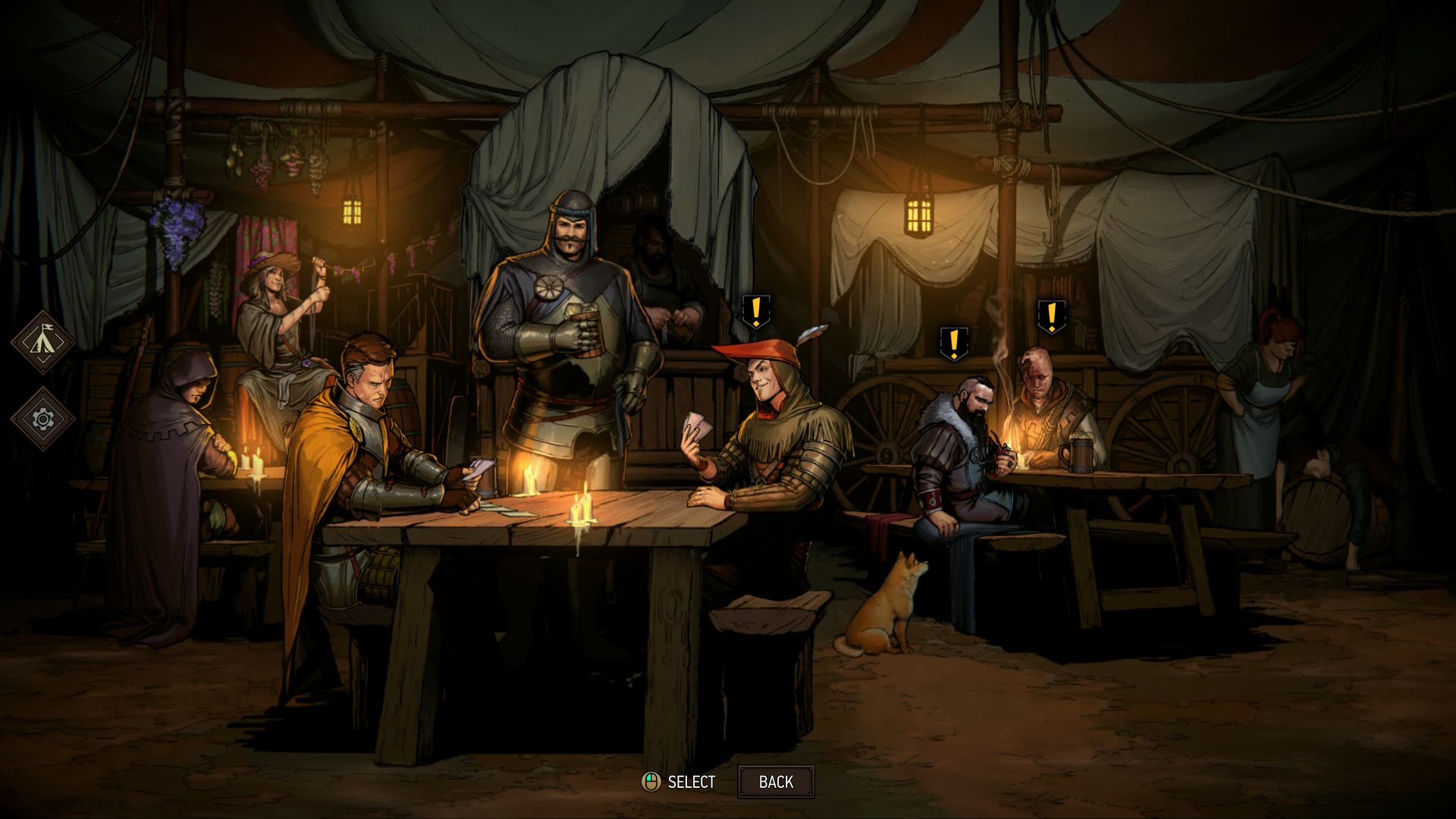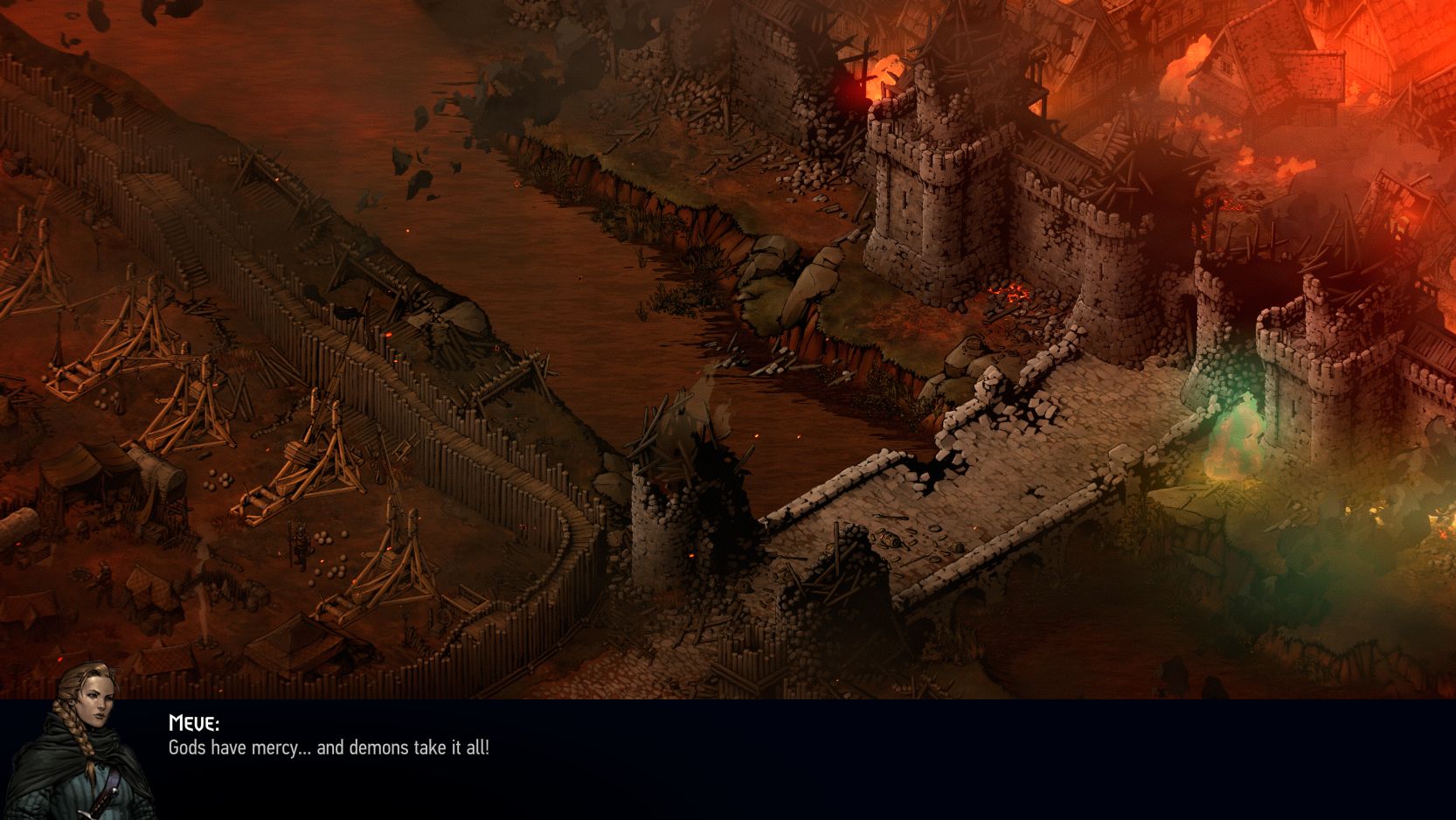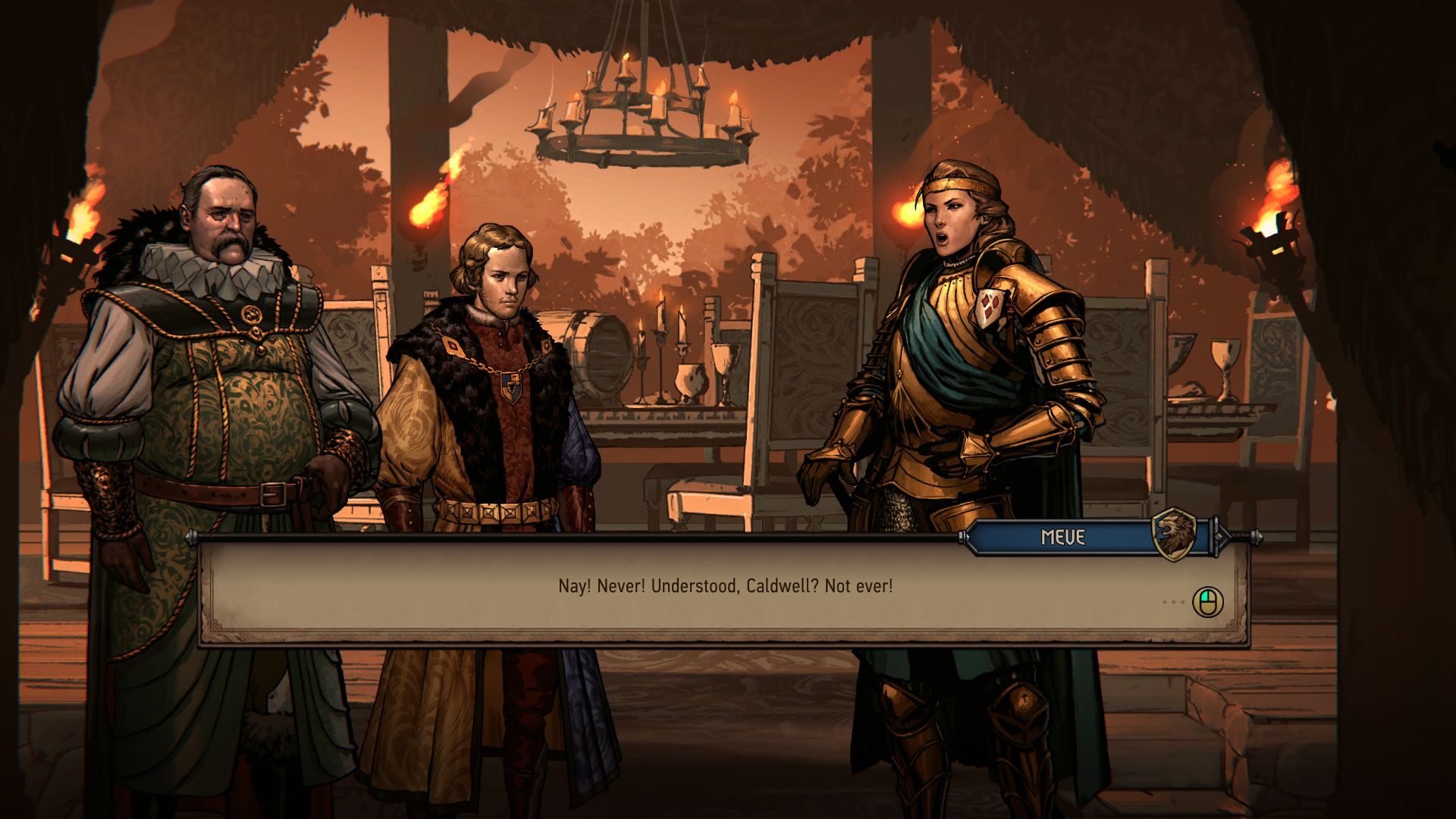Wot I Think - Thronebreaker: The Witcher Tales
They finally Gwent and did it
Thronebreaker has been taking me for a ride. Fighting monsters and blackclad horsemen in this card-game-sorta-RPG is a bit like being on a bumpy mine cart. You’re going up and down and swiping lots of gold along the way, the ride is smooth then boring then exciting then dull. Sometimes it could use a diesel engine. Or something more environmentally friendly? I don’t know, this metaphor is breaking down. There’s been a cave in, the mine’s closed, everyone go home. What I'm trying to say is: Thronebreaker: The Witcher Tales has a few problems with pacing and a dry story in places, but otherwise it's a decent singleplayer spin-off of Gwent and the cards are worth a shuffle.
It's about a queen called Meve. But let’s put her highness and her retinue of misfits to one side for now, and talk about what you’ll really be doing most of the time. Surprise! It’s Gwent.
If you aren’t familiar with Gwent, it’s a two-player game in which you basically need to get a higher number than your opponent. You each get a deck of numbered cards and, oh look, this angry pikeman has 5 power. That’s good, save him for now. Let’s say your foe goes first and - ah, he put down an elf with a dagger, that's 9 power.
Luckily, cards have special abilities. That pikeman? He can summon all other pikemen in your deck. Throw him down and they all spill onto the field like eager cockroaches. Now you have 20 power in total, and your opponent (a disgusting loser with only 9 points) has to catch up. Games go on like this, one card at a time, with different tricksy moves. The victor is whoever wins two of three rounds.
There’s a lot more to it than that, but I’ll let you read our Gwent impressions for more about the basic rules. It’s a good game, as solid as paving slabs, and it’s the beginner-friendly bluff ‘em up that I recommend to anyone looking to get into collectible card games.
The biggest difference in Thronebreaker is that card battles aren’t fought against stinky, fleshy humans, but the computer-controlled antagonists of a (surprisingly lengthy) story. Nilfgaardian generals, elven guerillas, grumpy mages. The kind of folk who inhabit the world of the Witcher. That you're battling a computer kinda removes the joy from bluffing and misdirection, a big part of Gwent's appeal. It reduces fights to clashes of logic, arithmetic, and a simple matter of who's got the better cards.
It’s still interesting, but there’s a reason most of the encounters here are “shortened battles” that only last one round. Why there are only two lanes, instead of three. Why the landscape is peppered with puzzles (matches with special rules and limited cards). The AI isn’t up to outsmarting a human player in a three-round match (at least on normal mode it isn't). So the challenge lies only in using the right stabby assassin at the right time, or in building a deck full of snarling bandits that can take all comers.
But this card game also finds itself shunted into an isometric adventure game of sorts. When you aren’t throwing crossbowmen and cavalry onto a muddy grid, you’re walking about with happy clicks, exploring a rustic world full of hamlets and farms and fields and windmills and - oh no, they’re all on fire.
Queen Meve is in trouble. She’s returning from a summit of leaders and there are rebels pestering the locals. There’s a war coming too, from the imperial forces of Nilfgaard. And plenty of monsters along the roads as well. You’ve got a large map to explore, and fights to start (mostly by wandering up to baddies and right-clicking on them). As a result the story is very slow to get going. It took six hours until I really felt invested in Meve’s struggles, even though the plot twist that brought this on was not exactly a surprise.
It also marks a turning point in the cardy battles. Up until this moment new cards come to Meve in a drip-feed fashion. I found her starting deck uninspiring, a clattering column of vanilla troops and damage-dealing crossbow dudes. As a player of multiplayer Gwent, I’m maybe more impatient than most, being used to more choices and freedom when deck-building. It’s only after the first twist in the tale that whole new decks become possible, and the camp you’ve been travelling with is allowed to upgrade in any meaningful or interesting way, unlocking new warriors and scrappers.
But I understand that not everyone is in it for the cards. To those seeking Witcher-like storytelling, you sort of get it. It’s not quite an RPG. And if it is, it’s a very limited one. The world is beautifully drawn, and I’m glad the animators of Gwent got a chance to show off their talent outside the borders of a card. I’m going to use the word “sumptuous” now and smack my lips several times.
Mmmm. Sumptuous.
That said, it’s not as freeing a landscape as it looks. You get to plod around this world, and pick up bits of wood or gold (used to forge copies of cards). You get to listen to farmers moan and dwarves giving you insurance advice. But the map is always more or less a straight line, all winding paths eventually looping back to the main thread. You don’t really explore the countryside of Lyria or Aedirn or [redacted], you take a tour bus through it, stepping off to check every quaint side road for pennies and puzzles. Many puzzles irritated me, too focused on fiddling with numbers, but some of them are great, such as one that makes a puzzle out of a drinking competition, or one that grimly asks you to get rid of all the corpses on a field.
At certain times, dialogue boxes pop up and you get choices to make. But often this choice boils down to “fight” or “don’t fight”. And when you’re rewarded with card-making currency for fighting, it makes little sense to say no. I’ve seen headlines spinning Thronebreaker as an RPG in its own right, and I could even understand if it was compared to a visual novel at times. But really, it’s a card game with walky bits. And that’s perfectly fine. Because it’s a good card game, with good-looking walky bits. Just don’t go in expecting The Witcher 3.5.
As for the quest itself, well. The storytelling doesn’t so much ebb and flow, more “faff and flood”. It’s a story being told by an external narrator, held up in a tavern with some guards. That framing device disrupts Meve’s character, I found. You are too often told about Meve’s fierceness, bravery and ingenuity, but rarely shown it. When the game does let you display some royal verve (mostly through dialogue choices) it’s fairly rote stuff. Kill a man or spare his life. Kill some elves or spare their lives. Kill a monster or spare its life. Hmm, yes, this is definitely a videogame.
Only later do your choices start to become more complex, tinged with regret and consequence, and the roster of characters grows to a point where you can try to forget about Meve herself, because although this is her tale, she is one of the least interesting sword-swingers of the bunch. Your squad of hippy sorceresses, scarred siege engineers, and racist bodyguards is far more interesting, each character bringing with them a powerful card to be used in battle. And it’s possible to lose some characters (and their cards) because of choices that you make along the way. But new ones are just as soon introduced, so you don't have to slum it with her highness.
It’s probably the way queen Meve talks that puts me off. It’s very “prithee speak gentle squire”. Rather than give her majesty or nobility, I just find the affectation distracting. Meve and other characters also have a habit of speaking in the order of object-subject-verb. “Our land they’ve attacked,” says Reynard. “Speak with him, I shall,” says Meve. It’s just a bit odd. They're aristocrats, not Yoda. She speaks fine much of the time, and then one of these “fnyar fnyar” lines will slip through. It's not a huge deal, just a bit inconsistent. You’re a no-nonsense warrior queen, Meve. Why lappeth the words about thy teeth so? It doesn’t fit her character, and it’s not even how people spoke back in those days. You know, those days, with the swamp hags.
I’m nit-picking, of course. I picketh of the nits. When a single character’s dialogue is the most annoying thing about a card game, the creators probably deserve some credit. Lord knows the voice acting is at least as good as it is The Witcher 3: Wild Hunt, and so is the writing. By that I mean the writing is a passable exploration of fantasy tropes and power politics that’ll probably become hugely overrated.
BAM. Hit you with my lukewarm take there. The Witcher 3’s writing is just OK.
Anyway, I have to wrap up this review, before the Bloody Baron squad comes for me. It’s important to say that I still haven’t finished this tale of motherly love and elf racism. After 20 hours of troll-bashing and soldier-slaying, I still haven’t revealed the final lands to which Meve and the gang will travel. But I’m enjoying it enough to crack on, to ignore the limited nature of the maps, and even the cards that don’t work as described (I’ve had two cards so far that are bugged and just do nothing but whatever I'm over it).
Right now, I have a deck that’s a bit cheesy, full of traps and firebombs that slowly bleed any enemy to death as they fight. But part of me is hoping for another twist that’ll throw even more cards into my hands, snatch my beloved deck away from me, and force me to experiment a little. At the risk of opening a vein I should have closed, I’m waiting for the mine cart to get de-railed and send me over the next gorgeous cliff.
Thronebreaker: The Witcher Tales is out on October 23rd on GOG.
